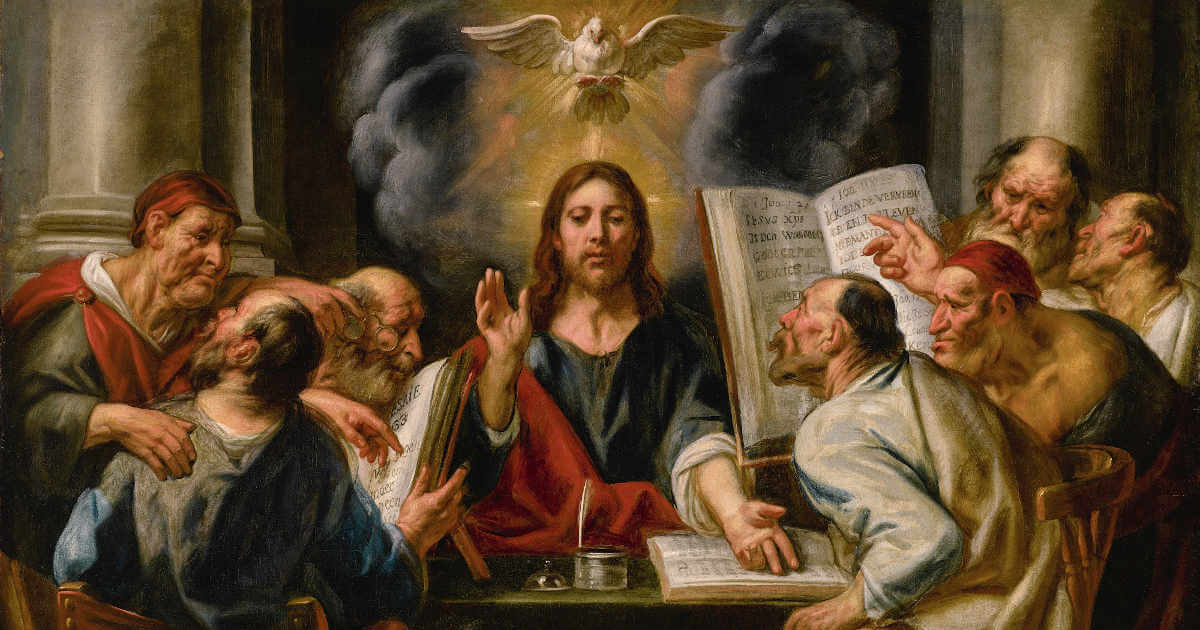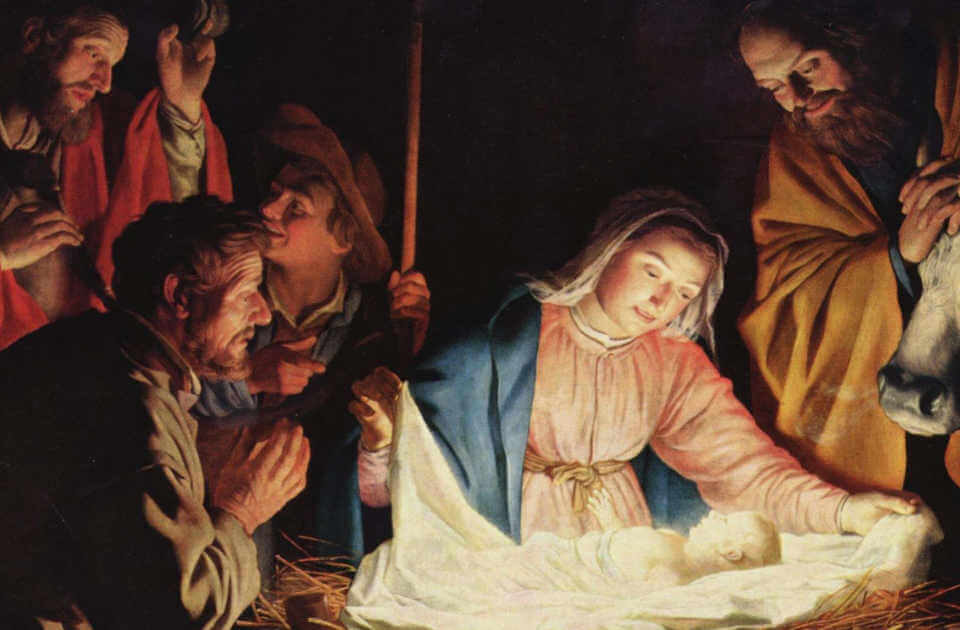30th Sunday in Ordinary Time | Reflection – The Command of Love

Christ among the Pharisees (https://catholic-daily-reflections.com/)
The Command of Love
30th Sunday in Ordinary Time (A)
We are always fascinated by the divine gift of love. The fascination is rooted from our very being. Human beings are fascinated by spiritual properties of love. But, more than that fascination, love becomes mystical when man finds that he is a being of love.
Everyday is an opportunity to discover love in our selves and in the “otherness” of beings. As man is lovable, which means, he can be loved, the person who can be given love also is giving the same love — the beloved is also a lover. Being viewed in the perspective of God, love therefore is a superabundant reality that unfolds in the plane of divine grace. God inspires us this love in a dialogical direction. Love enables us to become relational beings.
The core of the gospel reading this Sunday is an existential statement, or rather, a Divine mandate of love. The gospel context does not presumed an absence of love which enables the imperative of love. Rather, the mandate is the “slow-motion” of God’s ever sustaining presence to man to make the latter ever-responding to love. The great commandment therefore is not a one-time gesture of God for man. It is rather like a string that pierces our lives from the beginning of our existence in the great mind of God until we will be received back to Him in the fullness of His love.
The command of love on earth is the most challenging imperative since, as we are being tied by our limitations and pressed between the pockets of freedom and grace, our courses of action are being affected by the imperfection of our mode of existence. That’s why, understand why love can become so limited on earth. We even deal with love in difference parlances. We have to differentiate love according to the receiving end. And we cannot interchange these modes of love at whim. We cannot love our parents the way we love our pets; lovers cannot love each other best friends love each other. Men should love as sexual partners of the opposite sex and is also true with women. Children love with tinge of childishness but should grow in maturity of grace.
This is why the Gospel is ordering the commandment of love into two important levels. The love for God in itself and the love of God expressed and seen in the love of neighbor. Saint Augustine once wisely delivered in one of his sermons: “How can you claim you love God whom you cannot see but be blind from loving your neighbors whom do you see?” The difference between the love of God and neighbor shows that we should respect the hierarchy and differences of love proper to its object. But, it also interjects into our lives that in all levels, our different forms of love should instruct us that in the end, it will boil down into one most important love of all: the love of God to us.
In the end, let us take the very particular mandate of love from the book of Exodus in our first reading. The love which is expressed in the necessity of obedience to care for the widow, the orphan. As it is limited and at time problematic is our venue of love, particular mandates of love expressed in the concrete actions like care, mercy, sympathy and tenderness, are powerful reminder of the lofty truth of love. By doing the leg-works of love, we realize how profound God’s love because, even in a limited way, we understand how God sustains, how God loves in a diverse manner without the strain of human limitation. That is why, when man loves more than a normal human condition gives, it is called divine. We realize then that the command of love is a call for our deification. It tells us that the fascination of love from where we began our encounters of love will be the one to assist us to reach God, who is Love, as the final fulfillment of our fascination. | Rev. Fr. Ric Anthony Reyes, OSA





